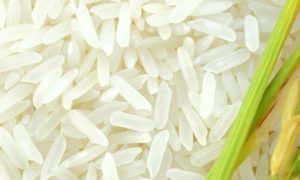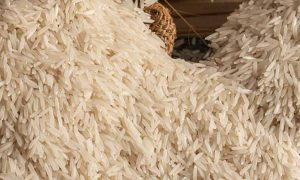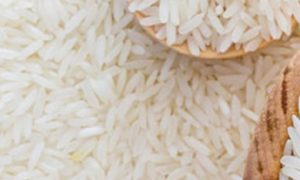Thai rice exports in 2025 struggling, downward target revision ahead

Thailand’s rice exports for Q1 2025 dropped 30%, totaling 2.1 million tonnes, prompting a revision of export targets. This decline is due to India’s resumed exports, higher Thai rice prices, and competition from Vietnam. Despite efforts to negotiate new markets, experts predict lower exports in 2025, potentially causing Thailand to lose its position as the second-largest rice exporter.
BANGKOK: Thai rice exports in the first quarter of 2025 totaled 2.1 million tonnes, a decrease of about 30 per cent. Following this sharp decline, there are plans to revise the 2025 export target downward.
Thailand’s rice exports in 2024 reached 9.95 million tonnes, a 13 per cent increase and the highest in six years since 2018. The value of exports was US$6.434 billion, up 27 per cent, driven by higher global demand and India’s suspension of rice exports, benefiting Thailand’s export growth.
However, in 2025, Thailand’s rice exports are expected to decline compared to 2024 due to various factors, including the trade war from Trump’s tariff policies, India’s resumption of rice exports, a stronger baht, and higher rice prices compared to competitors.
The Ministry of Commerce and the Thai Rice Exporters Association have set an export target of 7.5 million tonnes for 2025.
Rice exports from Thailand have significantly dropped, with the first quarter showing a 30 per cent decrease in exports.
Chookiat Ophaswongse,Honorary President of the Thai Rice Exporters Association, revealed that in the first quarter of 2025, Thailand exported 2.1 million tonnes of rice, a 30% per cent decrease compared to the same period last year.
This decline is largely due to a 53 per cent drop in 15 per cent white rice exports, as India resumed rice exports, and major importers like the Philippines have not yet made significant purchases. Last year, the Philippines imported four million tonnes, but this year is expected to only import one million tonnes.
Furthermore, Thailand faces competition from India and Vietnam, whose rice prices are lower. Specifically, India’s rice is priced US$40 cheaper per ton than Thailand’s, prompting several countries, such as South Africa, Malaysia and the Philippines, to turn to India instead of Thailand.
For the direction of Thai rice exports in Q2 of 2025, Chookiat estimates that the overall situation will remain quiet, with export numbers expected to be similar to the first quarter. Exporters are concerned that if the US increases import tariffs on Thai rice to 20-25 per cent or even 36 per cent, the price of Thai jasmine rice could rise to US$1,200-1,300 per tonne, making competition more difficult.
According to Charoen Lertthammasathit, President of the Thai Rice Exporters Association, exporters are not only concerned about the potential increase in US import tariffs but also about the transportation costs to the US. This is due to President Trump’s announcement of a new tax on goods transported by ships built in China, which will take effect in October.
Since China is a major hub for shipping, accounting for 80 per cent of global shipping production, this will have worldwide implications.
“If this policy is enforced, transportation costs will rise by an additional US$6 per tonne. Currently, Thai jasmine rice is exported to the US at US$1,000 per ton with a ten per cent tariff. If transportation costs are added, it will increase to US$1,006. If import tariffs are raised further, the price of Thai jasmine rice will become too expensive, and competition will be even more difficult. With Trump 2.0, global trade and exports will change significantly, and both the government and private sector need to be prepared to face these challenges,” Charoen said.
Nevertheless, the Ministry of Commerce has been accelerating efforts to negotiate rice sales to importers. Recently, the Department of Foreign Trade organised a mission to sell rice in South Africa, securing 400,000 tonnes. The department will continue to target new markets and, this year, it will host the 10th Thailand Rice Convention 2025 (TRC 2025) on May 26, 2025, with expectations of increasing Thai rice sales.
Arada Fuangtong, Director-General of the Department of Foreign Trade, stated that the TRC 2025 event this year will attract over 500 participants from both domestic and international sectors. These include government representatives, importers, exporters, relevant agencies, media, farmers and agricultural professionals.
The event will feature key activities such as panel discussions, lectures, exhibitions to promote Thai rice, quality checks and certifications for Thai jasmine rice (Green Label), rice variety displays, rice tastings, and cooking demonstrations using Thai rice. There will also be presentations on the sustainability of the Thai rice industry in line with the event’s theme.
“During the conference, business negotiations between importers and exporters will take place, with an expected value of over 100,000 tonnes or approximately two billion baht in orders. Additionally, discussions with key traders to expand the Thai rice market, particularly in Africa and the Middle East, are planned,” Arada noted.
However, the latest figures for Thai rice exports from January 1 to April 18, 2025, show a decrease of 19.31 per cent, with exports totaling 2.477 million tonnes. This decline is attributed to India’s return to rice exports and favourable weather conditions in several countries, resulting in higher overall production. Additionally, importing countries are reducing their rice imports.
Poonpong Naiyanapakorn, Director of the Trade Policy and Strategy Office (TPSO), explained that rice exports in 2023-2024 performed well due to the impact of hot weather and the El Niño phenomenon on many rice-producing countries, which reduced their yields. Additionally, India had suspended rice exports, allowing Thailand to increase its market share.
However, in the second half of 2024, India resumed rice exports, leading to a decrease in Thai exports, as it lost market share to India. Furthermore, Thai rice prices remain higher than those of competing countries, and yields per rai are lower.
Since November 2024, Thai rice exports have steadily decreased, with a 23.4 per cent drop in March. Therefore, all relevant parties need to urgently address these issues to restore Thai rice exports to previous levels.
Given the overall export situation from late 2024 to March 2025, it appears that this year’s rice exports will not perform as well as last year’s. There is a possibility that the Ministry of Commerce and rice exporters may revise their export target downward. Additionally, Thailand is at risk of losing its position as the world’s second-largest rice exporter, a title it held in 2024, to Vietnam if these issues are not addressed effectively.
To Read more about Rice News continue reading Agriinsite.com
Source : The Star

















